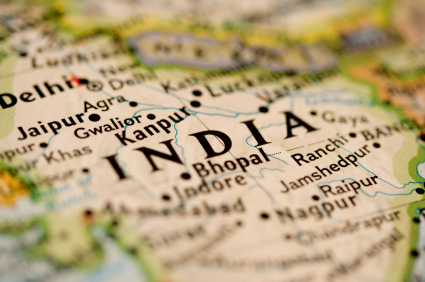
DODOMA, Tanzania (BP)–The Gogo people who live in the Dodoma region of Tanzania farm tiny plots of land where they grow a yearly food ration according to the mercies of the rainy season.
The “rainy” season of 1997 wasn’t so merciful. A drought caused most crops to wither. Others flowered hopefully, then drooped and died. The few that persevered bore only a fifth of the region’s normal annual yield.
But where Satan meant destruction to the Gogo people, Southern Baptist International Mission Board missionaries seized on a way to demonstrate the love of God to them. Their efforts helped relieve the suffering, save lives, build local churches — and win souls for the kingdom of God.
By last fall the Gogo were in the early stages of starvation, and Tanzanian officials declared Dodoma one of five regions in a state of famine. Many parents left children and traveled to distant areas looking for work and food. If they did return, they often found their children dead.
Food is available in Tanzania — for a price. It costs $4 to feed a family for a week. The 1.3 million people of Dodoma are subsistence farmers who make an average of only $60 a year.
Working with Tanzanian pastors and youth trained in evangelism, missionaries Olan and Lynn Burrow organized a project to provide food for Gogo people in 10 areas where Baptist churches are located. Over and over, the busy pastors and youth volunteered to help in the project.
Using $254,000 in Southern Baptist World Hunger Funds, they bought and distributed enough corn and dagaa, a small protein-packed fish, to feed 31,000 people for a month. They also distributed seed corn for the current growing season. The teams visited each village once a month for four months, and stayed to ensure every bucketful of food got into the hands of those who needed it.
Relief teams gave hungry villagers as much as 20 tons of food in four hours, but the task seemed insurmountable. “We have enough money to give 600 tons, which sounds like a lot, but it is only enough for 10 villages out of a thousand here in Dodoma,” Burrow said.
The workers scheduled nothing evangelistic on their first food distribution visits, to establish in the minds of people that everyone in need would receive the same amount regardless of their faith. Immediately, every church began reporting increased attendance, and some reported decisions for Jesus. Later, workers began each distribution day with a service. People have continued to make decisions.
God showed himself supreme throughout the project. In one area, the village leader tried to take over the distribution, and when he couldn’t he tried to close the church. But the village rallied around Baptists. The next Sunday the village leader’s son accepted Jesus. After that 40 others have done the same.
Another high point in the project occurred when the pastors and youth were asked by missionaries from another denomination to do evangelism to accompany their relief work in four villages.
In that effort, more than 100 people accepted Jesus. In addition, the workers trained pastors and church leaders from half a dozen denominations with no previous experience in evangelism.
“Just imagine how excited those youth and young pastors were,” Burrow said. “And how thankful we are for them. They have come a long way.”











